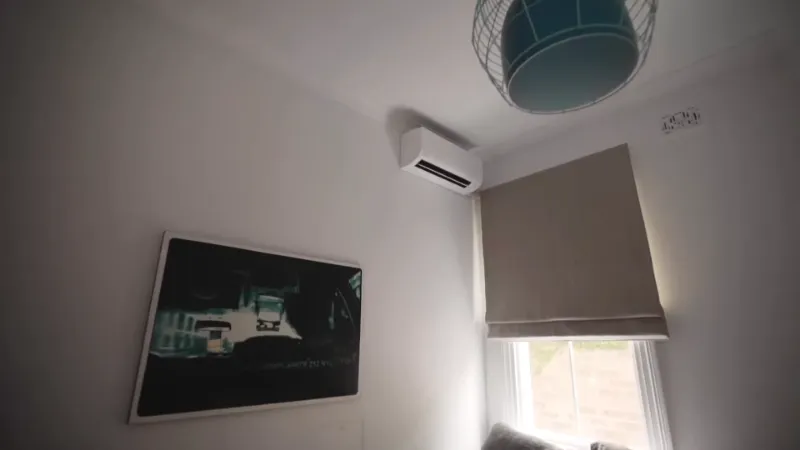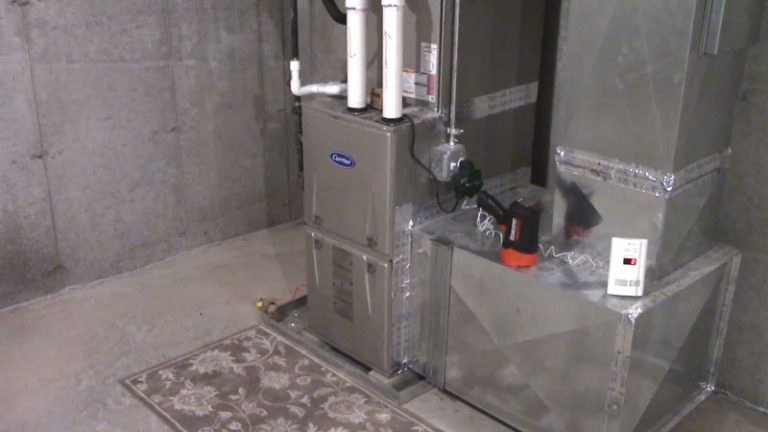Will a 3500 Watt Generator Run an Air Conditioner?
Generators are useful tools that provide backup power when there’s an outage or when you need to power electrical devices in remote areas. However, not all generators are suitable for every electrical device.
If you’re planning to use a generator to power your air conditioner, it’s important to know the power requirements of your air conditioning unit and the power output of the generator. In this article, we will focus on the question of whether a 3500 watt generator can run an air conditioner, and explore the factors that determine its feasibility.
You'll Learn About
Will a 3500 Watt Generator Run an Air Conditioner?
Generally, a small window air conditioner with a cooling capacity of up to 10,000 BTUs will require around 1500-2000 watts to operate, while a larger central air conditioning system with a cooling capacity of 3-4 tons can require around 3500 watts to run.
Therefore, a 3500 watt generator may be able to run a smaller air conditioner, but it may not be enough to power a larger central air conditioning unit. It’s important to check the power requirements of your specific air conditioner unit before using a generator to power it.
It’s also important to note that starting up an air conditioner unit typically requires a higher amount of power, known as surge or starting wattage, than maintaining its operation. So even if a 3500 watt generator can run a specific air conditioner unit, it may struggle to provide enough power during startup.
In summary, while a 3500 watt generator may be able to run a small air conditioner, it’s important to check the power requirements of your specific unit before relying on a generator for power. For larger air conditioning systems, a generator with higher wattage may be necessary.
Power Requirements for Air Conditioners
Air conditioners come in different types and sizes, and they have different power requirements. Knowing the power requirements of your air conditioner is crucial to determine if a 3500 watt generator can run it.
The power consumption of air conditioners is measured in watts, and it consists of two values: starting wattage and running wattage. Starting wattage is the amount of power required to start an air conditioner.
This value is higher than the running wattage, as it takes more energy to get the compressor running. Running wattage is the amount of power required to keep the air conditioner running once it’s started.
The power requirements of air conditioners vary depending on their size, type, and efficiency rating. Central air conditioning units generally require more power than window or portable air conditioners, as they’re designed to cool an entire house. A typical central air conditioner will require around 3500 watts to run, while a window unit will require around 1700 watts to run.
Air conditioners require more power during start-up because the compressor needs to work harder to circulate the refrigerant and start cooling the air. The compressor requires more energy to start than to keep running, which is why the starting wattage is higher than the running wattage.
In summary, air conditioners have varying power requirements depending on their size and type. Knowing the power consumption of your air conditioner is essential to determine if a 3500 watt generator can run it.
Starting wattage and running wattage are two values that you need to consider when estimating the power requirements of your air conditioner. Finally, air conditioners require more power during start-up due to the compressor’s extra energy needed to start the cooling process.
Can a 3500 Watt Generator Run an Air Conditioner?
Whether a 3500 watt generator can run an air conditioner depends on several factors. One of the most crucial factors is the power consumption of the air conditioner.
As discussed earlier, the power requirements of air conditioners vary depending on their size, type, and efficiency rating. While a 3500 watt generator can power many household appliances, it may not be powerful enough to run some air conditioners.
A central air conditioner typically requires a higher starting wattage, and running wattage than a window or portable air conditioner. Most central air conditioners require around 3500 watts to run, while a window unit will require around 1700 watts to run.

In addition to the power consumption of the air conditioner, the size and type of the generator also play a significant role in determining if it can power the air conditioner. A 3500 watt generator is typically considered a mid-range portable generator, and it may not be able to handle the high starting wattage required by larger air conditioners.
Therefore, a 3500 watt generator can run an air conditioner, but it depends on the size and type of the air conditioner. A small window unit air conditioner should be able to run on a 3500 watt generator without any issues. However, a central air conditioner may require a larger generator with a higher wattage output to handle the high starting wattage.
the power consumption of the air conditioner, the size and type of the generator, and the size and type of the air conditioner are crucial factors in determining whether a 3500 watt generator can run an air conditioner. It’s essential to know the power requirements of your air conditioner and the specifications of your generator to ensure that it can handle the load.
Limitations of Using a 3500 Watt Generator to Run an Air Conditioner
While a 3500 watt generator can power many appliances and tools, it may not always be suitable for running an air conditioner. There are certain limitations that must be considered to prevent potential damage to the air conditioner or generator.
One of the primary limitations is the risk of overloading the generator. If the air conditioner requires more power than the generator can provide, the generator may shut down, causing damage to the unit or the generator. This can occur if the air conditioner requires more starting wattage or running wattage than the generator can supply.
Another limitation to consider is the potential damage to the air conditioner or generator if the power supply is inconsistent. Power surges and drops can harm the air conditioner and cause the generator to fail. Additionally, the air conditioner may draw too much power from the generator, causing it to overheat and break down.
Weather conditions can also have an impact on the performance of the generator. For instance, high temperatures can make it more difficult for the generator to produce enough power to run the air conditioner.
Similarly, extremely low temperatures can cause the generator to consume more fuel and struggle to produce the necessary power. Additionally, rain or moisture can damage the generator or pose a risk of electrical shock.
In summary, while a 3500 watt generator can be a convenient way to power an air conditioner, there are certain limitations to consider. It is important to determine the power requirements of the air conditioner and the capabilities of the generator to avoid damage to either unit. In addition, monitoring weather conditions and providing proper maintenance to the generator can help ensure reliable performance.
Alternatives to Using a 3500 Watt Generator for Air Conditioning
When it comes to air conditioning, a 3500 watt generator may not always be the best solution. Fortunately, there are a few alternatives to consider if a 3500 watt generator is not enough to meet your air conditioning needs.
Using a Higher Wattage Generator
If a 3500 watt generator is not enough to power your air conditioner, you may need to consider using a higher wattage generator. A generator with a wattage output of 5000 watts or higher can typically handle the power requirements of a standard-sized air conditioner. Keep in mind, however, that higher wattage generators may be more expensive and require more fuel to operate.
Alternative Power Sources for Air Conditioning
In addition to generators, there are other alternative power sources that can be used to power air conditioning systems. Solar power, for example, is becoming an increasingly popular option for homeowners who want to reduce their dependence on traditional energy sources. Geothermal heat pumps are also a viable option for cooling homes, particularly in areas where electricity is expensive or unreliable.
Tips for Reducing Air Conditioning Power Consumption
If you’re determined to use a 3500 watt generator to power your air conditioner, there are a few steps you can take to reduce your power consumption. First, make sure your air conditioner is properly sized for the space you’re trying to cool.
An oversized air conditioner will consume more power than necessary, while an undersized unit will struggle to cool your home. Additionally, regular maintenance of your air conditioner can help it run more efficiently, reducing its power consumption.
Finally, try to limit your use of the air conditioner during peak power consumption hours, when demand for electricity is highest.
Power Requirements for Different Types of Air Conditioners
| Air Conditioner Type | Starting Wattage | Running Wattage |
|---|---|---|
| Window Unit | 5100 | 1700 |
| Central AC | 3500 | 3500 |
| Portable Unit | 1800 | 1200 |
| Ductless Mini-Split | 4500 | 1500 |
This table provides a comparison of the starting wattage and running wattage for different types of air conditioners. It shows that central air conditioners require a higher wattage to run than other types of air conditioners, which is important to consider when determining if a 3500 watt generator can run the specific air conditioner. The table also shows that ductless mini-split air conditioners require a higher starting wattage than other types of air conditioners, which could impact the generator’s ability to start and run the unit.
Frequently Asked Questions
What Other Appliances Can a 3500 Watt Generator Run Besides an Air Conditioner?
A 3500 watt generator can run a variety of household appliances, such as refrigerators, freezers, lights, fans, TVs, and computers.
It can also power small power tools and certain electric stoves. However, it is important to note that the total power consumption of all appliances should not exceed the generator’s wattage capacity to avoid overloading.
How can you estimate the running time of an air conditioner on a 3500 watt generator?
The running time of an air conditioner on a 3500 watt generator can vary depending on factors such as the size of the air conditioner, the generator’s fuel capacity, and the outside temperature.
To estimate the running time, you can divide the generator’s wattage capacity by the air conditioner’s running wattage to get the maximum running time in hours. For example, a 3500 watt generator powering a 1700 watt air conditioner can run for up to 2 hours, assuming the generator’s fuel tank is full and the air conditioner is the only appliance being powered.
Can a 3500 Watt Generator Run Multiple Air Conditioners at the Same Time?
It is not recommended to run multiple air conditioners on a 3500 watt generator, as it may not have enough wattage capacity to power them simultaneously.
The total power consumption of all appliances being powered by the generator should not exceed its wattage capacity to avoid overloading and potential damage to the generator or appliances. 2000 Watt inverter might be able to run ACs, 12V batteries can’t supply larger ACs.
How Can You Prevent Damage to the Air Conditioner or Generator When Using a 3500 Watt Generator for Air Conditioning?
To prevent damage to the air conditioner or generator when using a 3500 watt generator for air conditioning, it is important to ensure that the generator is properly grounded and that the air conditioner is connected to a surge protector.
It is also important to monitor the generator’s fuel and oil levels and avoid overloading the generator by only powering essential appliances. Additionally, it is recommended to keep the generator in a well-ventilated area to avoid carbon monoxide poisoning.
What Alternative Power Sources Can Be Used for Air Conditioning?
Alternative power sources for air conditioning include solar panels, wind turbines, and battery storage systems. These power sources can be used to supplement or replace traditional generators and can provide more sustainable and environmentally-friendly energy solutions.
However, it is important to note that these alternative power sources may require significant upfront costs and maintenance, and may not be suitable for all households or regions depending on the availability of sunlight or wind.
Conclusion
A 3500 watt generator can run some air conditioning units, but it depends on various factors such as the size and type of the air conditioner and the wattage of the generator. It is important to be aware of the power requirements of your specific air conditioning unit and to choose a generator with sufficient power to avoid overloading or damaging both the air conditioner and the generator.
Additionally, there are alternative power sources and tips to reduce air conditioning power consumption to consider. When using a generator to power your air conditioner, always make sure to follow the manufacturer’s instructions and take the necessary precautions to ensure safe and effective operation.




